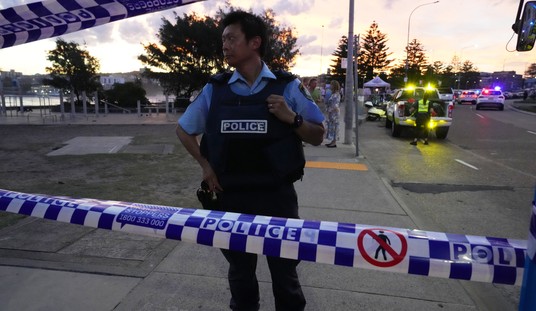Tanorexia is the term to used describe the latest form of “Body dysmorphic disorder (BDD). BDD is a conditon “wherein the affected person is concerned with body image, manifested as excessive concern about and preoccupation with a perceived defect of their physical features.” Some people think they are too thin and cure it with anorexia. Some people think they are too pale and camp out in the tanning salon for tanorexia.
Nobody’s perfect. As Ceferino Chang once told Philip Marlowe in the novel Playback, “I’m part Chinese, part Hawaiian, part Filipino, and part ni**er. You’d hate to be me.” But dysmorphia ain’t what it used to be in the bad old racist days. Today some people simply hate to be themselves, whatever they are. We live in an age of equal opportunity dysmorphia.
People with BDD say that they wish that they could change or improve some aspect of their physical appearance even though they may generally be of normal or even highly attractive appearance. Body dysmorphic disorder causes sufferers to believe that they are so unspeakably hideous that they are unable to interact with others or function normally for fear of ridicule and humiliation about their appearance. This can cause those with this disorder to begin to seclude themselves or have trouble in social situations.
As applied to groups, the equivalent of BDD is something called oikophobia. It is the wholesale to dysmorphia’s retail. Oikophobia is the hatred of your whole country. “In his book, Roger Scruton: Philosopher on Dover Beach, Mark Dooley describes oikophobia as … an extreme aversion to the sacred and the thwarting of the connection of the sacred to the culture of the West is described as the underlying motif of oikophobia; and not the substitution of Judeo-Christianity by another coherent system of belief … Scruton uses the term as the antithesis of xenophobia.”
What does a person with this condition do? While people afflicted with mere BDD starve themselves, have repeated plastic surgery or bake themselves to leather, oikophobes do everything in their power to express a contempt for the filthy culture of their birth. This may include, but is not limited to, traveling abroad to denounce their country in the most vociferous terms, preferably in time of war, though peacetime serves as well. They are sometimes called xenophiles, attracted to anything they are not.
Such people are hated, pitied, laughed at. A cruel public sometimes finds in them a form of entertainment not unlike that formerly experienced at the carnival freak show. But perhaps no scorn is greater than that which they feel for themselves.
Because they have to hate something. There was a time when cultures instinctively feared self-hatred. Edward Hale’s “Man Without a Country” explores the idea of whether it was truly possible to live life out apart from others, completely detached from culture. His premise was simple, what if a man who wished never to hear of home again got what he wanted? You might say that in today’s multicultural world a man might have his pick of anything else.
If Michael Moore could go live in North Korea or Cuba, surely that would make him happy? Well perhaps not. The usefulness of home — for some at least — is that it gives them something to hate. Deprived of an object of despicion, some men rapidly decline and die.
Kim Philby, according to the Guardian, drank himself to death in Russia, disillusioned with the Communism for which he betrayed England. That should have come as no surprise. Philby needed something to betray more than he required something to love. Love, John LeCarre once wrote, “is whatever you can still betray”. For some, the only logical purpose of love it to make betrayal possible.
Spare a pang for such sensitives. The Australian left wing intellectual Philip Adams confessed that he dreaded life without John Howard. In an article titled, “Someone to Loathe”, he wrote in despair of the coming emptiness when at last Howard left office. For 11 years he had been sustained by hatred. What would he do without it?
For God’s sake don’t tell Christopher Hitchens or Richard Dawkins, but despite a lifetime’s atheism I have, over the past decade, been driven to prayer. My increasingly desperate appeals have been addressed to Jehovah, Yahweh, Allah, Thor, Ra, Vulcan and sundry totems, jujus, graven images and idols – entreating one or more of them to end the Howard Government …
Where will all that hatred go when he’s gone? … For 11 years John Winston Howard has been my central focus, my obsession, my bogeyman, my nemesis. To be without him might answer those prayers. But as has been wisely said “Beware the answered prayer”!
Adams had not the wit to realize that God does exist and was not without a sense of irony. Last I heard John Winston Howard was writing a book for a posterity that will cherish him long after it has forgotten Philip Adams. But Adams can take comfort in the knowledge that although Howard is gone, he can still take up tanning.
http://www.youtube.com/watch?v=sL6iNtyKec4
How to Publish on Amazon’s Kindle for $2.99
The Three Conjectures at Amazon Kindle for $1.99
Storming the Castle at Amazon Kindle for $3.99
No Way In at Amazon Kindle $8.95, print $9.99












Join the conversation as a VIP Member